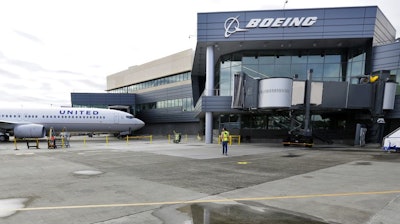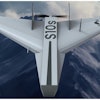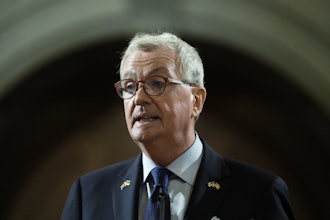
Boeing employees raised doubts among themselves about the safety of the 737 Max, apparently tried to hide problems from federal regulators and ridiculed those responsible for designing and overseeing the jetliner, according to a batch of emails and texts released nearly a year after the aircraft was grounded over two catastrophic crashes.
The documents, made public Thursday by congressional investigators, are likely to fuel allegations that the vaunted aircraft manufacturer put speed and cost savings ahead of safety in rolling out the Max. Boeing has been wracked by turmoil since the twin disasters and is still struggling to get the plane back in the air. Last month, it fired its CEO, Dennis Muilenburg.
In the internal messages, Boeing employees talked about misleading regulators about problems with the company's flight simulators. which are used to develop aircraft and train pilots. In one exchange, an employee told a colleague he or she wouldn't let family members ride on a 737 Max.
Employees also groused about Boeing's senior management, the company's selection of low-cost suppliers, wasting money, and the Max.
“This airplane is designed by clowns who in turn are supervised by monkeys,” one employee wrote.
The names of the employees who wrote the messages were redacted.
Boeing said the conversations “raise questions about Boeing’s interactions with the FAA” in getting the simulators qualified. But it said the company is confident the machines work properly.
It said it is considering disciplinary action against some employees: “These communications do not reflect the company we are and need to be, and they are completely unacceptable.”
The Max has been grounded worldwide since March, after two crashes five months apart — one involving Indonesia's Lion Air, the other an Ethiopian Airlines flight — killed 346 people. Investigators believe the crashes were caused when the jetliners' brand-new automated flight-control software mistakenly pushed down the planes' noses.
Boeing is still working to fix the flight-control software and other systems on the Max to persuade regulators to let it fly again. The work has taken much longer than Boeing expected, and it is unclear when the plane it will return to the skies.
A lawmaker leading one of the congressional investigations into Boeing called the messages “incredibly damning.”
“They paint a deeply disturbing picture of the lengths Boeing was apparently willing to go to in order to evade scrutiny from regulators, flight crews and the flying public, even as its own employees were sounding alarms internally,” said Rep. Peter DeFazio, D-Ore., chairman of the House Transportation Committee.
DeFazio said the documents detail “some of the earliest and most fundamental errors in the decisions that went into the fatally flawed aircraft.”
The internal Boeing documents were provided to the Federal Aviation Administration and Congress last month.
An FAA spokesman said the agency found no new safety risks that have not already been identified as part of the FAA’s review of changes that Boeing is making to the plane. The spokesman, Lynn Lunsford, said the simulator mentioned in the documents has been checked three times in the last six months.
”Any potential safety deficiencies identified in the documents have been addressed,” he said in a statement.
The grounding of the Max will cost the company billions in compensation to families of passengers killed in the crashes and to airlines that canceled thousands of flights. Last month, the company decided to suspend production of the plane in mid-January, a decision that is rippling out through its vast network of suppliers.
The CEO was ousted after alienating regulators, Boeing's airline customers and the crash victims' families with his handling of the disaster and his overly optimistic predictions for when the plane might fly again.






















